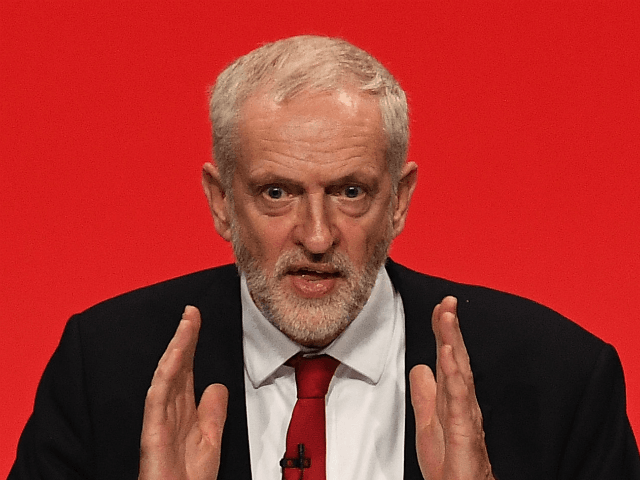Senior Jewish figures have criticised far-left Jeremy Corbyn’s response to Labour’s anti-Semitism problem, where he failed to apologise or admit his own role in the crisis, calling it “meaningless”.
While the party leader admitted that Labour has “a real problem” with anti-Semitism in an opinion piece for The Guardian, he was quick to criticise so-called “overheated rhetoric” from British Jewish press and neglected to accept any blame or fault in the party itself for fostering an environment where hatred against Jews was allowed to grow.
“I do not for one moment accept that a Labour government would represent any kind of threat, let alone an ‘existential threat’, to Jewish life in Britain, as three Jewish newspapers recently claimed,” Corbyn wrote in his piece, referencing Jewish newspapers uniting after a series of high-profile revelations of anti-Semitism in the Labour ranks.
“That is the kind of overheated rhetoric that can surface during emotional political debates. But I do acknowledge there is a real problem that Labour is working to overcome.”
Jeremy Corbyn Praised Hamas Terrorists as ‘Brothers’ on Iran State TV https://t.co/U87EJ9LMY8
— Breitbart London (@BreitbartLondon) August 2, 2018
A spokesman for the Jewish Labour Movement criticised Corbyn, saying: “Today, other than another article bemoaning a situation of the party’s own making, nothing has changed. There is no trust left. We find ourselves asking once again for action, not words.”
Despite writing that he was confident the dispute over the definition of anti-Semitism — which the party developed in response to the growing problem — Corbyn gave no indication that Labour was about to accept the full International Holocaust Remembrance Alliance (IHRA) definition, which includes examples of anti-Semitism cloaked in criticism of Israel or Zionism.
Claiming that the party’s definition protects “free speech” in relation to talking about Israel, the far-leftist, who called Islamist terror groups Hezbollah and Hamas “friends”, wrote in The Guardian this one example “has sometimes been used by those wanting to restrict criticism of Israel that is not antisemitic” and went on to say that “assert[ing] that ‘anti-Zionism is racism’ now is wrong too.”
This is despite examples of so-called ‘criticism’ of Israel or “anti-Zionism” being used to cloak hatred of Jews, and the term “Zio” being found to be thrown at Jewish students with “casual abandon” on Britain’s university campuses.
Last week, Dame Margaret Hodge, who is currently in a dispute with the Labour Party after calling Corbyn a “racist and anti-Semite”, received anti-Jewish abuse online including being called a “Zionist bitch” and “a zionist remedial cancer” in the pay of Israel.
Corbyn Ally Attacks ‘Jewish Trump Fanatics Making Up’ Anti-Semitism Claims https://t.co/lZyD1pIvkI
— Breitbart London (@BreitbartLondon) July 31, 2018
Gideon Falter, the chairman of Campaign Against Antisemitism, criticised Corbyn for the “vague and meaningless article” where “there is no acknowledgement of his own role in this crisis. There is no apology for his antisemitic activity in the past, but he has hypocritically condemned as antisemitic behaviour that he himself has been guilty of.”
“Under his leadership the once anti-racist Labour Party has become institutionally antisemitic and an existential threat to British Jewry,” Mr Falter added.
Other Jewish leaders condemned the timing of the release of the article (Friday night) which is the beginning of Jewish Sabbath.
The editor of The Jewish Chronicle, Stephen Pollard, tweeted: “So keen is Corbyn to engage with Jews that he publishes this (awful) piece on a Friday night, for a Saturday paper. So not a single observant Jew can engage with it.”
And Peter Mason of the national Jewish Labour Movement told Sky News on Saturday that Corbyn had “used very strong words” but “demonstrates very little action on behalf of the Labour Party”, adding that he had “no trust” and “no faith left” in the party.
‘Anti-Semite and a Racist’: The Scandals Following Labour’s Shift to the Far Left https://t.co/r8XlEppC5q
— Breitbart London (@BreitbartLondon) July 18, 2018

COMMENTS
Please let us know if you're having issues with commenting.